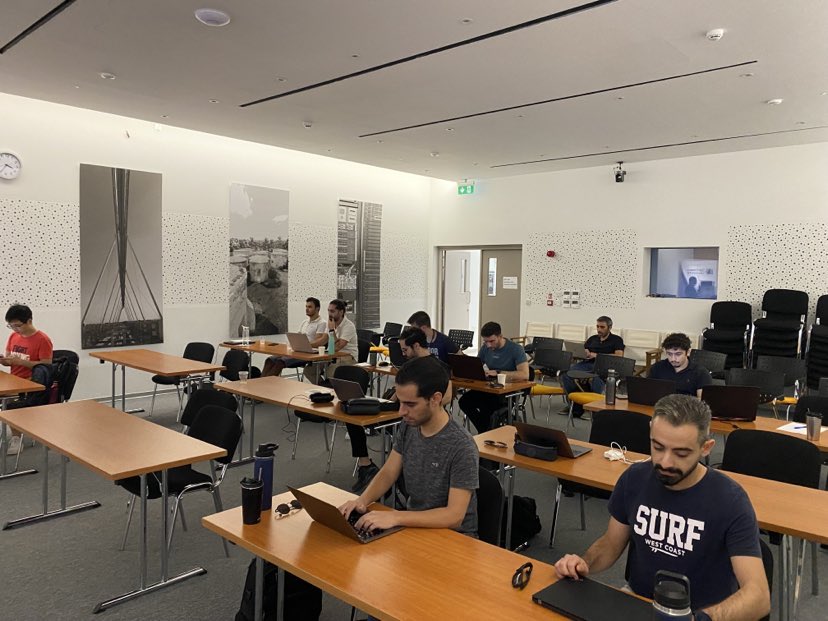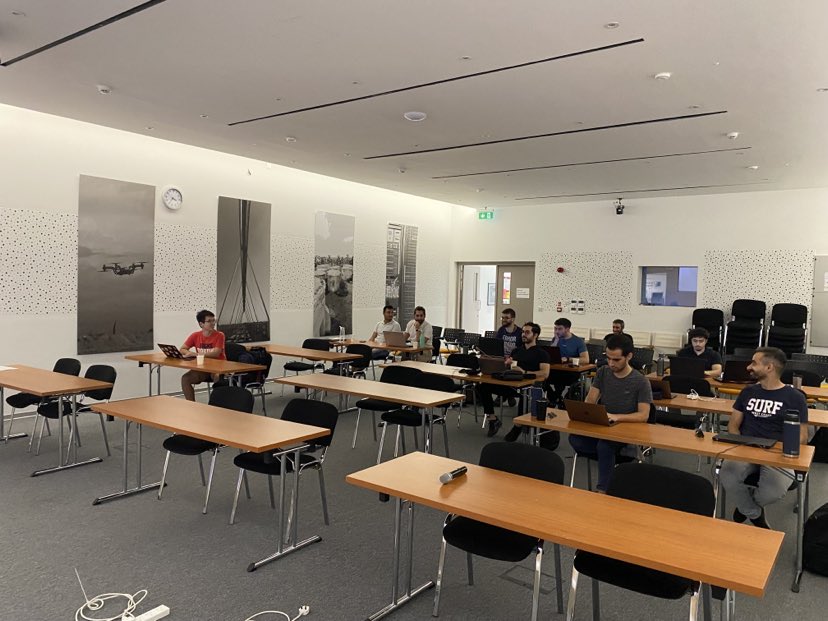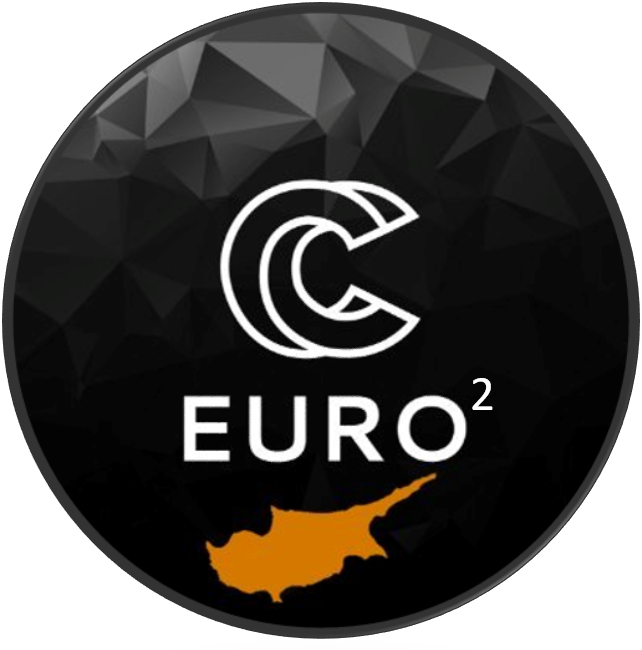Date: 9 - Thursday November 2023
Location: Fresnel Auditorium, The Cyprus Institute
Description:
Join our beginner-level training event where you'll learn the basics of High Performance Computing, Machine Learning, and Artificial Intelligence in a simple and engaging way. Through easy-to-follow lectures and hands-on activities, grasp the concepts behind deep learning and neural networks. Plus, get practical tips on using the Cyprus Institute's High Performance Computing Facility and learn how to program in C++ using GPUs.
Please sign up here: Registration Form
Pre-requisites:
Basic programming skills in Python and C/C++ for hands-on examples.
Working SSH client (e.g., Putty for Windows users).
Location: Fresnel Auditorium, The Cyprus Institute
Description:
Join our beginner-level training event where you'll learn the basics of High Performance Computing, Machine Learning, and Artificial Intelligence in a simple and engaging way. Through easy-to-follow lectures and hands-on activities, grasp the concepts behind deep learning and neural networks. Plus, get practical tips on using the Cyprus Institute's High Performance Computing Facility and learn how to program in C++ using GPUs.
Please sign up here: Registration Form
Pre-requisites:
Basic programming skills in Python and C/C++ for hands-on examples.
Working SSH client (e.g., Putty for Windows users).
Agenda
9:00 - 10:00
Prof. Mihalis Nicolaou
Introduction to Deep Learning for Computer Vision
This talk will provide a broad introduction to machine and deep learning, using problems from several applications - primarily in computer vision. Concepts related to dimensionality reduction and compression, component analysis, and deep learning will be introduced under the lens of representation learning. Finally, an overview of recent developments in these areas will be presented.
Lecture Video
Lecture Slides
Prof. Mihalis Nicolaou
Introduction to Deep Learning for Computer Vision
This talk will provide a broad introduction to machine and deep learning, using problems from several applications - primarily in computer vision. Concepts related to dimensionality reduction and compression, component analysis, and deep learning will be introduced under the lens of representation learning. Finally, an overview of recent developments in these areas will be presented.
Lecture Video
Lecture Slides
10:00 - 11:00
Prof. Constantine Dovrolis
From large graphs to large neural networks
It is often the case that complex systems, both living and man-made, can be represented as static or dynamic networks (or graphs) of many interacting components. Network science investigates the topology and dynamics of such complex networks, aiming to better understand the behavior, function and properties of the underlying systems. In this lecture, we will review some algorithmic, computational, and statistical methods of network science, as well as various applications in social, communication and biological networks. We will focus on the overlap between machine learning and network science, covering methods for network inference, generative network models, graph embeddings using graph neural networks, and other state of the art topics.
Lecture Video
Lecture Slides
Prof. Constantine Dovrolis
From large graphs to large neural networks
It is often the case that complex systems, both living and man-made, can be represented as static or dynamic networks (or graphs) of many interacting components. Network science investigates the topology and dynamics of such complex networks, aiming to better understand the behavior, function and properties of the underlying systems. In this lecture, we will review some algorithmic, computational, and statistical methods of network science, as well as various applications in social, communication and biological networks. We will focus on the overlap between machine learning and network science, covering methods for network inference, generative network models, graph embeddings using graph neural networks, and other state of the art topics.
Lecture Video
Lecture Slides
11:00 - 11:30
Coffee Break
Coffee Break
11:30 - 12:30
Dr. Charis Chrysostomou
Data Cleaning and Preprocessing for Scientific Computing
This session offers graduate students and early-career postdocs a foundational understanding of data cleaning and preprocessing. We will discuss common challenges encountered in big data analysis and introduce essential techniques for data cleaning. Attendees will gain practical insights into how these methods can be leveraged in scientific computing platforms, providing a starting point for more advanced research and applications.
Lecture Video
Lecture Slides
Dr. Charis Chrysostomou
Data Cleaning and Preprocessing for Scientific Computing
This session offers graduate students and early-career postdocs a foundational understanding of data cleaning and preprocessing. We will discuss common challenges encountered in big data analysis and introduce essential techniques for data cleaning. Attendees will gain practical insights into how these methods can be leveraged in scientific computing platforms, providing a starting point for more advanced research and applications.
Lecture Video
Lecture Slides
12:30 - 13:00
Dr. Christos Christodoulou
Use cases of Machine Learning
This session will discuss use cases of machine learning in industry and showcase examples where machine learning has enabled companies to solve real-world problems and provide value to their customers.
Lecture Video
Lecture Slides
Dr. Christos Christodoulou
Use cases of Machine Learning
This session will discuss use cases of machine learning in industry and showcase examples where machine learning has enabled companies to solve real-world problems and provide value to their customers.
Lecture Video
Lecture Slides
13:00 - 13:30
Tour of High-Performance Computing Facility
Tour of High-Performance Computing Facility
13:30 - 14:30
Lunch Break
Lunch Break
14:30 - 15:45
Dr. Pantelis Georgiades
Introduction to HPC and Cyclone
This session will cover the basics of HPC and introduce the trainees to the available infrastructure at the Cyprus Institute (Cyclone). It will introduce the trainees to the available nodes in the cluster and discuss routes to gain access and compute time to the Institute’s HPC facility. Finally, there will be a hands-on session, where the trainees will work on Cyclone with the trainer’s help.
Lecture Video
Lecture Slides
Dr. Pantelis Georgiades
Introduction to HPC and Cyclone
This session will cover the basics of HPC and introduce the trainees to the available infrastructure at the Cyprus Institute (Cyclone). It will introduce the trainees to the available nodes in the cluster and discuss routes to gain access and compute time to the Institute’s HPC facility. Finally, there will be a hands-on session, where the trainees will work on Cyclone with the trainer’s help.
Lecture Video
Lecture Slides
15:45 - 17:00
Prof. Giannis Koutsou
GPU programming
An introduction to GPU programming using CUDA. The session includes a hands-on part, during which participants will have the opportunity to try out examples and solve simple exercises. The hands-on component requires some basic understanding of C or C++.
Lecture Video
Lecture Slides
Prof. Giannis Koutsou
GPU programming
An introduction to GPU programming using CUDA. The session includes a hands-on part, during which participants will have the opportunity to try out examples and solve simple exercises. The hands-on component requires some basic understanding of C or C++.
Lecture Video
Lecture Slides


